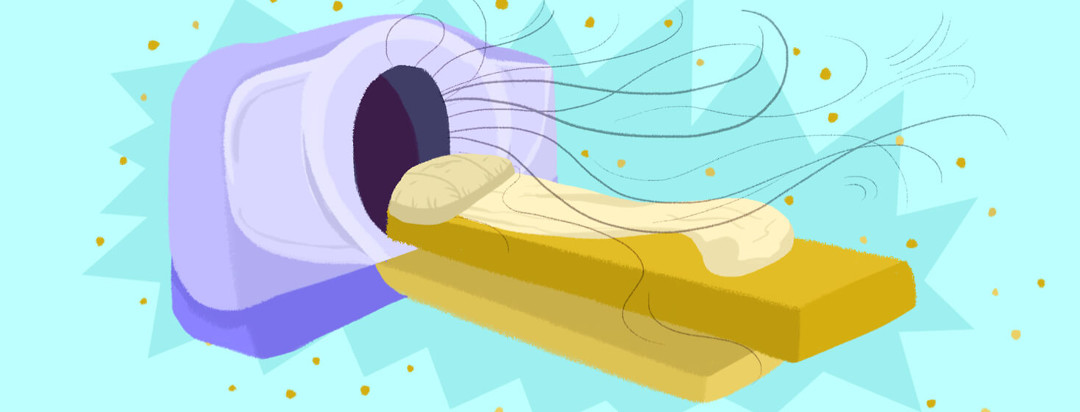What to Expect at a Chest CT Scan
Cystic fibrosis (CF) is typically diagnosed by a sweat test or with genetic testing, but once a diagnosis has been made, a chest CT scan (also commonly referred to as a CAT scan) is done to get a better look at the chest. A chest CT scan, or computed tomography scan, can help tell medical professionals how severe the CF is. Chest CT scans can also be used during treatment to monitor the disease. The procedure itself is over fairly quickly, is painless, and non-invasive.
What happens during a chest CT scan?
Similar to an x-ray, a CT scan uses x-ray-like machines to take images of the inside of the body. The images can be cross-sectional and combined for a three-dimensional view on a computer, giving the doctor a comprehensive look inside the chest. The CT can show internal organs, bones, soft-tissue, and blood vessels. A typical CT scan takes roughly 30 minutes and may or may not require the person to receive an injection with a contrast agent before the scan.1 Not all CT scans require contrast.
The CT scanner machine usually looks like a large donut-type machine with a tunnel in the middle that has an exam table that slides in and out. The CT tech will help position you on the exam table; sometimes straps or pillows are used to get into the proper position. It’s important to stay still during the scan, and these aids can help with that.
If a contrast is necessary, the tech will inject it before the scan. The table will pass you through the machine, which has rings in it that spin. They use x-ray beams and electronic x-ray detectors to rotate around the table in order to get the images.2 A computer program is then used to process the images to make two-dimensional cross-sections of your body.2 You won’t feel anything during the scan.
After a chest CT scan, you can resume normal activities. The images will be sent to a radiologist for interpretation, and the report will be sent to your doctor.
Why are chest CT scans important?
Chest CT scans can provide a picture of mucus and thickening of certain areas of the lungs. These can be signs of infection, inflammation, or possible lung damage.1 It’s important to be aware of these issues so they can be treated, and if monitoring of any thickening needs to be done, a CT scan is an easy, non-invasive way to do so.
These scans can also help track whether a new treatment is working or if a person’s CF is getting worse. A chest CT gives the doctor a more comprehensive view of what’s going on in the chest and lungs, which can help guide treatment and any next steps.
Are there any risks?
With most medical procedures or tests, there are some possible risks, and your doctor will go over them with you prior to ordering the test. It’s important to weigh the benefits against the risks, as well as the likelihood of you experiencing any of the adverse effects or events. Some possible risks include:2
- Cancer from too much exposure to radiation from numerous CT scans and other radiologic tests
- Harm to an unborn baby (notify the tech and your doctor if there is a chance you are pregnant or could be pregnant; CT scanning is usually not recommended unless necessary because of risks to the fetus)
- Allergic reaction to the contrast agent
- Children should have low-dose technique CT scans and when possible, avoid multiple scans
Things to know prior to your chest CT scan
Talk with your doctor about your medical history and whether there is a chance you could be pregnant. If you have reduced kidney function and the chest CT scan requires contrast, the dye might impair your kidney functioning even more.2 If you are clinically obese, check with your doctor and the scanning facility to make sure you will be able to be scanned with a typical machine; some people are over the weight limit (around 450 pounds) and either cannot fit into the opening of the machine or cannot fit on the table.2
Before the scan, make sure you wear comfortable, loose-fitting clothes, although you may be asked to change into a robe or gown. Take off any metal objects like glasses, dentures, or jewelry, including piercings. Remove any underwire bras or hearing aids. If you will have contrast with the chest CT scan, you will be told not to eat or drink for several hours before the appointment.
If you have any questions or concerns, talk with your doctor or treatment team prior to the CT scan. Let them know if you’ve been sick recently, or if there are any other medical issues occurring at the time of the scan.

Join the conversation